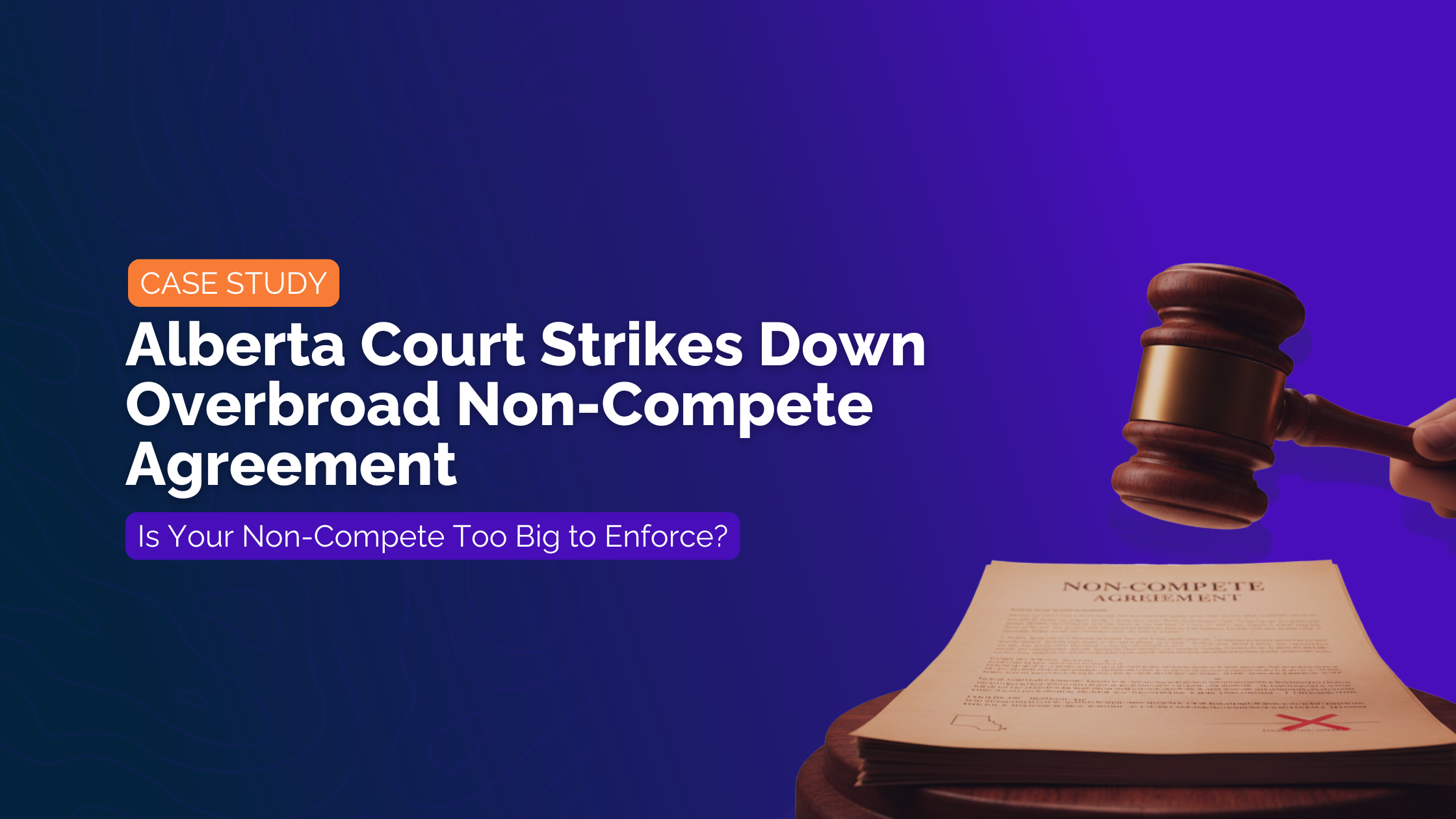Background
Tom Boguslawski worked as a Project Engineer for Carbon Engineering ULC (CE) — a subsidiary of Occidental Petroleum and OXY USA — from April 2019 to June 2025. CE develops Direct Air Capture (DAC) technology, a growing clean-tech innovation used to remove carbon dioxide directly from the air.
In May 2025, Boguslawski resigned to join Phlair GmbH, a German company also working in DAC technology. CE and its parent companies sought an interim injunction to enforce a 12-month non-competition clause that prohibited him from joining any competing business in North America.
The Issue
Should the court grant an injunction preventing Boguslawski from working for a competitor during the 12-month restricted period?
The Legal Test
The Court applied the three-part test for injunctions from RJR-MacDonald Inc v Canada (Attorney General) (1994):
- Is there a serious issue to be tried?
- Will irreparable harm occur if the injunction isn’t granted?
- Does the balance of convenience favour granting the injunction?
Because the case involved a restraint of trade in an employment context, the Court required the employer to show a “strong prima facie case,” meaning they were likely to succeed at trial.
Key Findings
1. Employee was not a fiduciary or key executive
- The Court found that Boguslawski was not a key employee or fiduciary.
- He was a mid-level project engineer with three levels of management above him.
- He did not personify the company or hold unilateral power over business decisions.
- Therefore, the clause required heightened scrutiny under employment law principles.
2. Legitimate business interest existed, but the non-compete was unnecessary
- The Court accepted that CE had a legitimate proprietary interest in protecting confidential information and trade secrets about DAC technology.
- However, CE already had a confidentiality and non-solicitation agreement in place.
- Justice Burns held that a non-competition clause was not necessary; this was not one of the “exceptional cases” where such an extreme restriction is justified.
3. Overbroad and ambiguous clause
- The non-compete prevented Boguslawski from working: “…in any business in direct competition with the Company’s business within North America…”
The Court ruled the clause was ambiguous and overly broad because:
- “North America” was undefined and unreasonably large; CE only operated in British Columbia and Texas, not across the continent.
- The clause covered any role “in any manner whatsoever,” even passive investment, which made it unclear what conduct would breach it.
- The term “direct competition” wasn’t defined, leaving uncertainty about which companies or activities were restricted.
4. Duration was reasonable, but geography and scope were not
- A 12-month restriction was reasonable for a fast-moving, high-tech industry.
- But applying that restriction across all of North America and to any role was excessive and unenforceable.
Decision
The injunction was denied.
The Court found the non-competition covenant unenforceable due to its overbreadth and ambiguity. The employer could not show a “strong prima facie case” for enforcement.
Key Takeaways for Employers
- Non-compete clauses are exceptional; use them only when confidentiality and non-solicitation provisions are insufficient (and remember that certain jurisdictions in Canada prohibit them altogether).
- Define your terms clearly (e.g., “competition,” “North America”) and tailor the restrictions to where the company actually operates.
- Avoid “catch-all” language like “in any manner whatsoever.” Courts see such broad drafting as unreasonable.
- Courts will not “fix” or rewrite an overbroad clause; an invalid covenant is unenforceable in its entirety.
- For most employees (especially non-executives), a well-crafted non-solicitation and confidentiality clause will provide adequate protection.
Even in high-tech industries with valuable trade secrets, courts protect the employee’s right to work. Employers should ensure restrictive covenants are narrow, specific, and proportionate — or risk losing all protection entirely.
HRC Tip:
The team at HRC Law can assist with specific restrictive covenants for employment agreements. Ask your account manager about package options for legal assistance.
Source: https://www.canlii.org/en/ab/abkb/doc/2025/2025abkb578/2025abkb578.html

